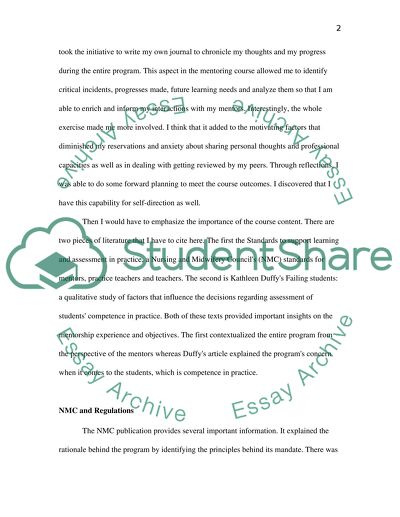Cite this document
(“Mentorship and Competence Paper Essay Example | Topics and Well Written Essays - 1500 words”, n.d.)
Mentorship and Competence Paper Essay Example | Topics and Well Written Essays - 1500 words. Retrieved from https://studentshare.org/nursing/1446976-reflection-and-critical-analysis-of-my
Mentorship and Competence Paper Essay Example | Topics and Well Written Essays - 1500 words. Retrieved from https://studentshare.org/nursing/1446976-reflection-and-critical-analysis-of-my
(Mentorship and Competence Paper Essay Example | Topics and Well Written Essays - 1500 Words)
Mentorship and Competence Paper Essay Example | Topics and Well Written Essays - 1500 Words. https://studentshare.org/nursing/1446976-reflection-and-critical-analysis-of-my.
Mentorship and Competence Paper Essay Example | Topics and Well Written Essays - 1500 Words. https://studentshare.org/nursing/1446976-reflection-and-critical-analysis-of-my.
“Mentorship and Competence Paper Essay Example | Topics and Well Written Essays - 1500 Words”, n.d. https://studentshare.org/nursing/1446976-reflection-and-critical-analysis-of-my.


